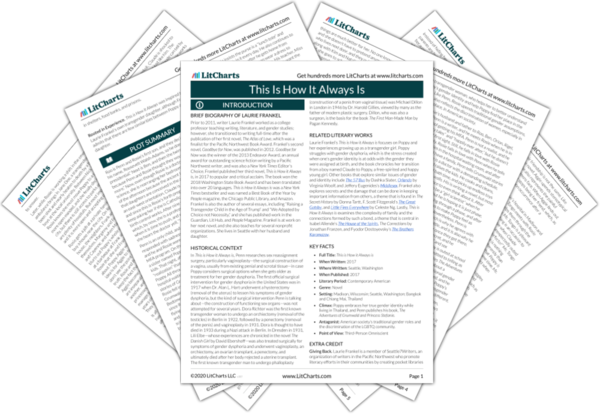Previous
Part I: Bedtime Story
|
Previous
Part I: Bedtime Story
|
This Is How It Always Is: Part I: Things They Told Doctors Summary & Analysis |
Next
Part I: Losers
|


Upgrade to unlock the analysis and theme tracking for all of This Is How It Always IsThis Is How It Always Is!
Get LitCharts A+